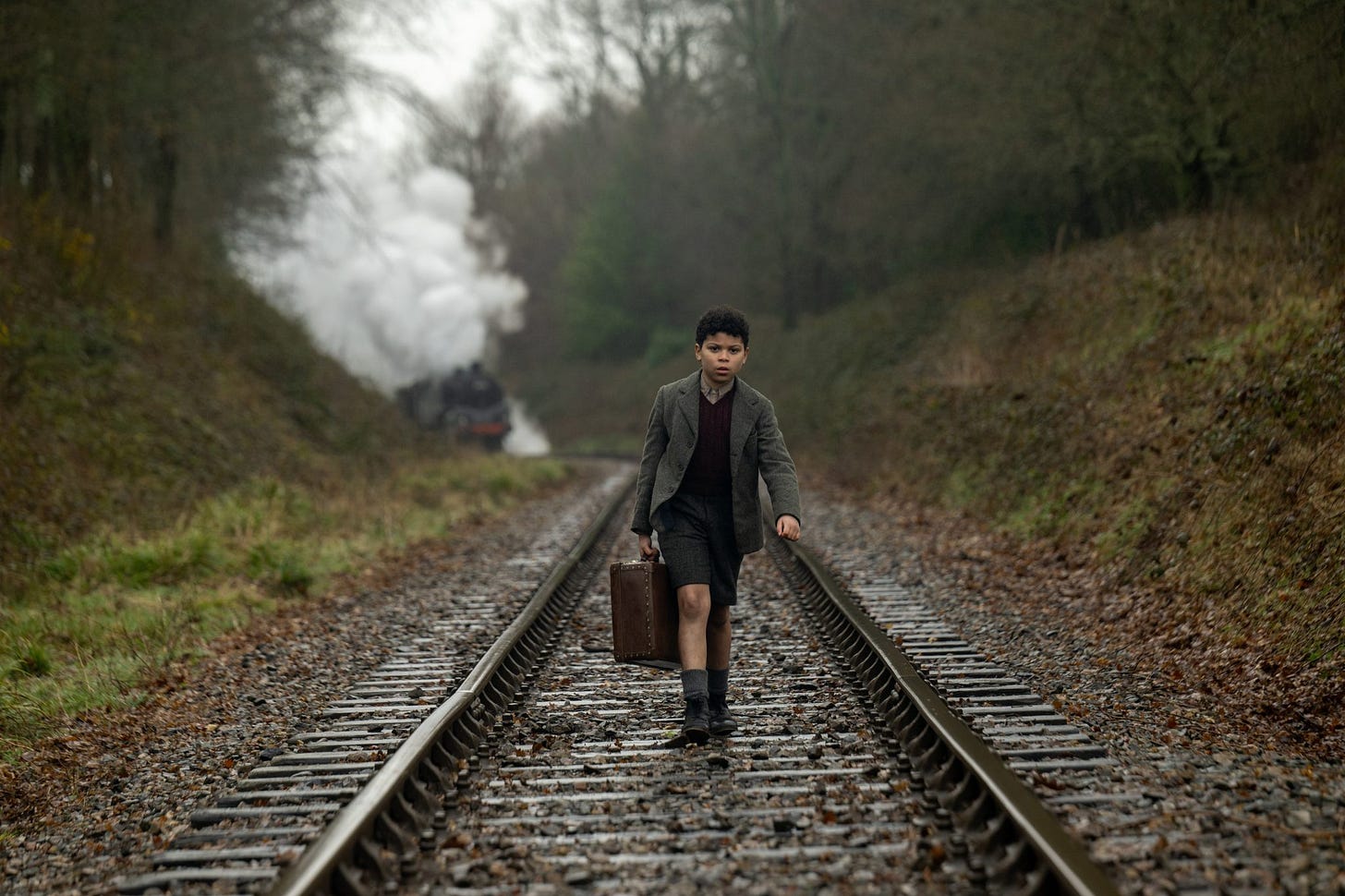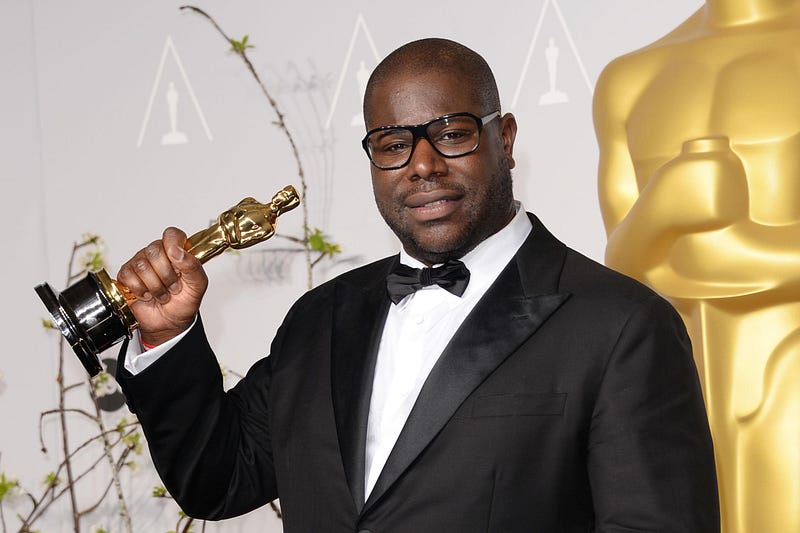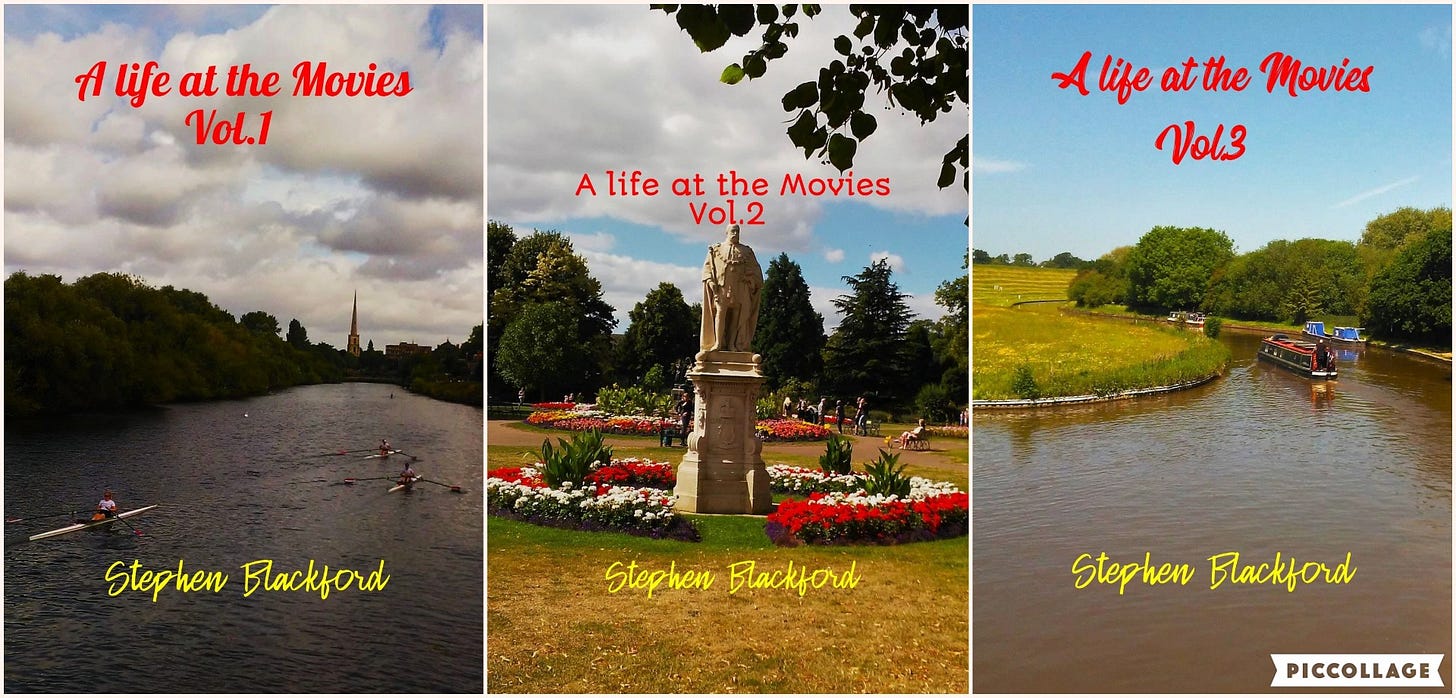
It’s almost hard to believe that a full adult generation has arrived and flowed merrily on by on the river of life since Steve McQueen released his incredible debut film Hunger in 2008 and perhaps equally so that the career of the London born filmmaker stretches back to 1993 and the first of many short films to follow, Bear. Arguably more famously known and renowned around the wider world for his multi Oscar winning epic 12 Years a Slave in 2013, I don’t remember seeing Hunger at the cinema but I certainly bought it on DVD almost immediately on release, as I did likewise with what remains his finest directorial achievement to date, 2011’s Shame, a desperately melancholic tale of disconnection and obsession, secrets and lies, and all wrapped around Carey Mulligan singing “New York, New York” and watching Michael Fassbender crumble into agonising dust before our eyes. To my shame (see what I did there?), I watched 2018’s Widows and despite my adoration of the TV series upon which it’s based I didn’t particularly care for it (and need to re-watch if only to pen my thoughts here on the film retrospectively) and have yet to see his 4 hour opus on memories, protests and the pandemic, within his 2023 film Occupied City.
Steve McQueen — Hunger, Shame & 12 Years a Slave
Originally published on 17th September 2014 and a trio of gems I had to re-watch and tidy up my original appreciation.
So instead I’ve skipped ahead in the career of Steve McQueen with a film I didn’t expect to enjoy as much as I did and with a film that not only exceeded my expectations but also, without the aid of trailers or any other reviews, a film I expected would be a simple family friendly drama wrapped around the obvious horrors of World War II, and which was anything but.
The opening 16 minutes:
“London, September, 1940”
“A year into World War II, Britain and its Commonwealth allies are standing against the might of Nazi Germany”
“Hitler’s air force launches a heavy bombing campaign targeting British towns and cities”
“This period is dubbed “The Blitz”, a term derived from the German “Blitzkrieg” meaning lightning war”
“1.25 million people in Great Britain are evacuated away from bombed cities to safer areas”
“More than half are children”
From this opening crawl in a simple white font on a dark black background, every word slowly dissolves except one, “Blitz”.
An immediate cut propels us into the heart of the film and firemen frantically trying to control raging fires in houses all around them in the dead and darkest of nights as a further quick cut sees an array of bombs loudly spinning downward from a fleet of aircraft overhead and back to the firemen on the ground desperately trying to quell the fires as the bleak devastation is writ large on the shells of buildings still standing but largely destroyed. From the inferno and fierce orange glow of fires raging as far as the eye dare see we cut to dizzying black and white images and discordant sounds that when settle, dissolve into a peaceful black and white image of flowers billowing in the wind as the first stirrings of a solo piano are heard and we dissolve once more, first into the bottom half of a gentleman playing the piano, a faithful and contented cat beside him, to a fuller image of “Gerald” (Paul Weller) more commonly known throughout the film as simply “Grandad” or “Dad”, tinkling the ivories of the piano as a camera angle from behind shows him looking at a portrait photo in a frame on a shelf. McQueen’s camera now moves slowly away from Gerald and around the room before moving into the hallway and up the stairs of a terraced London house and first a suitcase, then a sleeping “George” (Elliott Heffernan) being watched as he sleeps by his mother “Rita” (Saoirse Ronan). Next the mother and son are seen playing a joyful game of air drumming, excitement and joy abounds, before Rita plucks a loose eyelash from George and asks that he makes a wish. “Just one wish?” he replies, before agonising over his wish and we see a mother’s pride full of smiles and “what a handsome boy”.
An air raid siren breaks the familial serenity as Rita hurries George from the bed before calling for her Dad and all three quickly join the pitch black streets outside already filling with frantic neighbours heading for Stepney Green underground station. With the air raid siren continuing and an ever growing crowd desperate for shelter, the gates to the underground remain locked as an official declares loudly “This is not an authorised air raid shelter”. A bomb whistles loudly through the air before exploding nearby, sending an already panicked crowd surging for the gates once more and Rita screams “I’ve got a kid here. Open the gates”. Finally sense prevails as the gates are opened to an empty station as a discarded newspaper gently blows on the wind as the crowd rush for the safety of a night below ground and yet another bomb whistles through the air and explodes outside. George, Rita and Gerald sit together on the floor of the platform as Gerald warns his daughter that it’s unfair to keep her son and his grandson in London and he must be evacuated for his safety. George, holding the family cat “Ollie”, repeats “It’s gonna be OK, Ollie” before gently and quietly saying aloud that everything will be OK and they will all return home in the morning.
We cut to the following morning and a camera angle of George’s bare feet dangling over the side of the bed as Rita is seen packing a favourite comic into his suitcase. “Why can’t you come with me?” he pleads. “Sweetheart” Rita begins “I told you it’s an adventure for children only” before continuing that he’ll make new friends and a wonderful life in the countryside before he returns home when the war is over. “I want to stay with you” George pleads again, and “Please Mum. Don’t send me away”. Rita unbuckles a necklace before placing it around George’s neck. It was his Dad’s she explains, a father’s gift to his son and “it’ll keep you safe”. Leaving the bedroom we experience the first of many of the film’s juxtapositions to come: a son, broken and downcast and not wanting to leave, and a mother, lost and crestfallen, sighing loudly in the hallway. Cut to Gerald preparing a cooked breakfast in the kitchen as Rita joins him. Barely any words are spoken or indeed needed as the radio relays war progress in the background. As father and daughter hold hands, Gerald breaks the silence with a simple “It’s alright. It’s gonna be OK”.
Cutting outside to a tired and weary air raid warden “Jack” (Harris Dickinson), Gerald offers the young man a cooked breakfast for his overnight efforts to which he declines before wishing Rita a smile filled good luck for the day ahead. As Rita and George prepare to leave, Gerald is full of proud smiles for his grandson as well as telling him to be brave and to stand up to bullies because “they’re all mouth and no trousers”. George almost whispers this response, so his Grandad asks him to repeat this mantra more forcibly and with a smile, drops some coins into his jacket pocket “for emergencies” as we cut to George and Rita riding a red London double-decker bus, George lost in melancholic thought as McQueen captures London life continuing in spite of the war in some beautiful reflections. Arriving at the train station and walking toward the steam train soon to depart for the countryside, George angrily cannot contain himself any longer and exclaims “I hate you” before running away, through the busy crowds, and boards the train. Desperate to find her son, Rita walks anxiously along the platform before finally finding him as the train whistle signals the departure of the train and despite repeatedly banging on the window, George refuses to acknowledge Rita, staring straight ahead. As Rita is led away crying, the train fully begins its departure and the scene ends with George still staring straight ahead.
I expected Blitz to be somewhat of a family friendly drama and whilst it is to an extent, the PG13 rating is rightly in place for a reason and whilst I won’t divulge these exact reasons for fear of spoilers, there is a dark tale told here amongst the rubble of a war torn London and a 9 year old boy’s desperation to return to his family. The second Act (dominated by cameos from Kathy Burke and Stephen Graham) is particularly dark and upsetting, as is the repeated ugly racist slur of “monkey” as racism is an almost constant through line of the film, but surrounding it are a host of story threads that could get lost under someone else’s direction (but not here under McQueen’s) as well as constant juxtapositions of a mother’s love (an excellent as always Saoirse Ronan) and a 9 year old boy’s desperate need to return to the familiarity and safety of his family. Here Elliott Heffernan is remarkable in his debut feature film, surrounded as he is in a brokenhearted and bewildered performance of a stranger in a strange land and the flashbacks of happier times: of street cricket, singing alongside his Grandad and Mum at the piano or particularly poignantly, experiencing a Punch and Judy show in an underground station and the realisation we have as an audience that there are other children present and that George is, after all, and despite the film that has played out before us, still just a young kid, a young, alone, lost and frightened kid. I love a good juxtaposition, and they are here in spades! From Saoirse Ronan to Elliott Heffernan’s individual performances, the chaos of wartime life and the community spirit this engendered at the time, the helping of others in times of distress to cruel exploitation, the dividing of a society along ethnic grounds, religious practices and the ugly spectre of overt racism, through to Hans Zimmer’s clashing of discordant sounds for his musical score and, let us not forget, the Modfather himself Paul Weller in a stellar acting portrayal in his feature debut.
Blitz comes highly recommended and I expected nothing less from Steve McQueen.
Thanks for reading. I hope this message in a bottle in The Matrix finds you well, prospering, and the right way up in an upside down world.
Whilst you’re here I may as well brag about the release of my trilogy of recently self-published books. Beautiful covers eh! As the title(s) would suggest, this is my life at the movies or at least from 1980 to 2024, and in volume 1 you’ll find 80 spoiler free appraisals of movies from debut filmmakers, 91 of the very best films appraised with love and absent of spoilers from 1990–2024 in volume 2, and in volume 3 you’ll find career “specials” on Paul Thomas Anderson and Quentin Tarantino together with the very best of the rest and another 87 spoiler free film reviews from 2001–2024.
All available in hardback and paperback and here are some handy links:
"A Life at the Movies Vol.1" - link to Amazon
"A Life at the Movies Vol.2" - link to Amazon
"A Life at the Movies Vol.3" - link to Amazon









When I see "Steve McQueen" the first image in my mind is still the white American actor and not this accomplished Black British filmmaker. Shame....